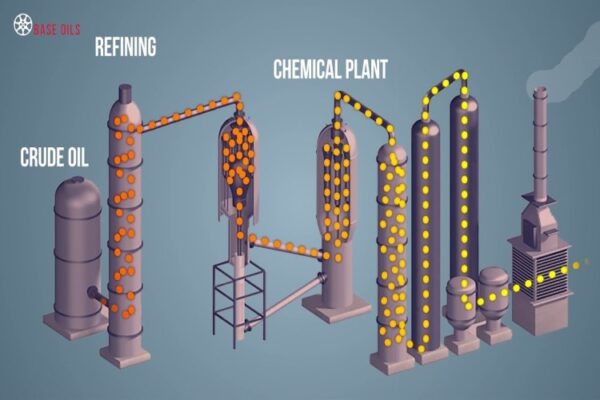
Engine oils are made of base engine oil and additives. The base oil is generally either refined crude petroleum or polymers synthesized in the laboratory.
There are three basic types: Mineral Engine Oils, Semi-Synthetic Engine Oils, and Fully Synthetic Engine Oils.
- Mineral Engine Oils:
Mineral Engine Oils are natural oils and, are a product or by-product of crude petroleum processing. After being extracted, these oils undergo several refining processes to remove impurities. Mineral oils mainly consist of hydrocarbons but they may contain compounds such as sulfur and nitrogen. Essentially the most basic type of engine oil, it is highly recommended for smaller capacity engines that do not impose a lot of mechanical pressure while running.
Though mineral oils are affordable, they don’t last very long. - Semi-Synthetic Engine Oils:
Semi-synthetic oil is a mixture of natural and synthetic oils. Manufacturers have taken the best of both worlds; the high level of protection from mineral oils and high-performance aspects from synthetic oils. The oil is recommended for bikes with engine capacity of 250cc or above, which produce healthy horsepower but still are not put under a lot of stress (like normal daily commutes to work). It is also recommended to switch to semi-synthetic oil after the bike has been run-in using mineral oil. Generally, all small capacity motorcycles can use this particular type but it will cost more than the normal mineral oil. - Fully Synthetic Engine Oils:
The fully synthetic oils are considered to be the best of the best. It is man-made from a series of chemicals blended in a factory laboratory. Synthetic oils can be manufactures to have different properties that improve their lubricating ability. The best example of when to use this type of oil is for high-performance motorcycles that are constantly put under a lot of stress. Superbikes and race machines are prime examples of machinery that require the help of fully synthetic oils.
The main benefit of fully synthetics oils is that they won’t degrade in terms of quality as they have constructed to have a very long life cycle. They won’t break down as fast as mineral oils or semi-synthetic oils. They also give the best lubricating performance which won’t break under pressure (providing that the right grade of oil is used). Additives are added to engine oils to increase their performance. There are many kinds of additives and their roles are:
• Oxidation Inhibitors Additives: They are added to engine oils to slow the process of oxidation of engine parts and improve the lifespan of engine
• Detergent Additives: The detergent additives help keep the hot areas of engine free of deposits and neutralise acids that form in the oil
• Dispersant Additives: The main use of these dispersants is to keep contaminants away from the oil and minimise the damage
• Anti Foaming Additives: They manage the foam produced by detergent additives which might restrict the engine oil from performing well
• Anti-wear Additives: They add a layer of protective solid oil to prevent metal to metal contact. These additives reduce the friction and wear of engine parts and are mostly added to mineral oils.
• Corrosion Inhibitor Additives: They prevent corrosion and rusting of metal parts of the engine
• Viscosity Index Modifiers: These additives prevent oils from thinning in different temperatures. “Read more about Viscosity in our article” • Antifreeze Additives: These additives let the engine oils adapt to different temperatures. They increase the fluidity of cold oils as they tend to thicken otherwise.